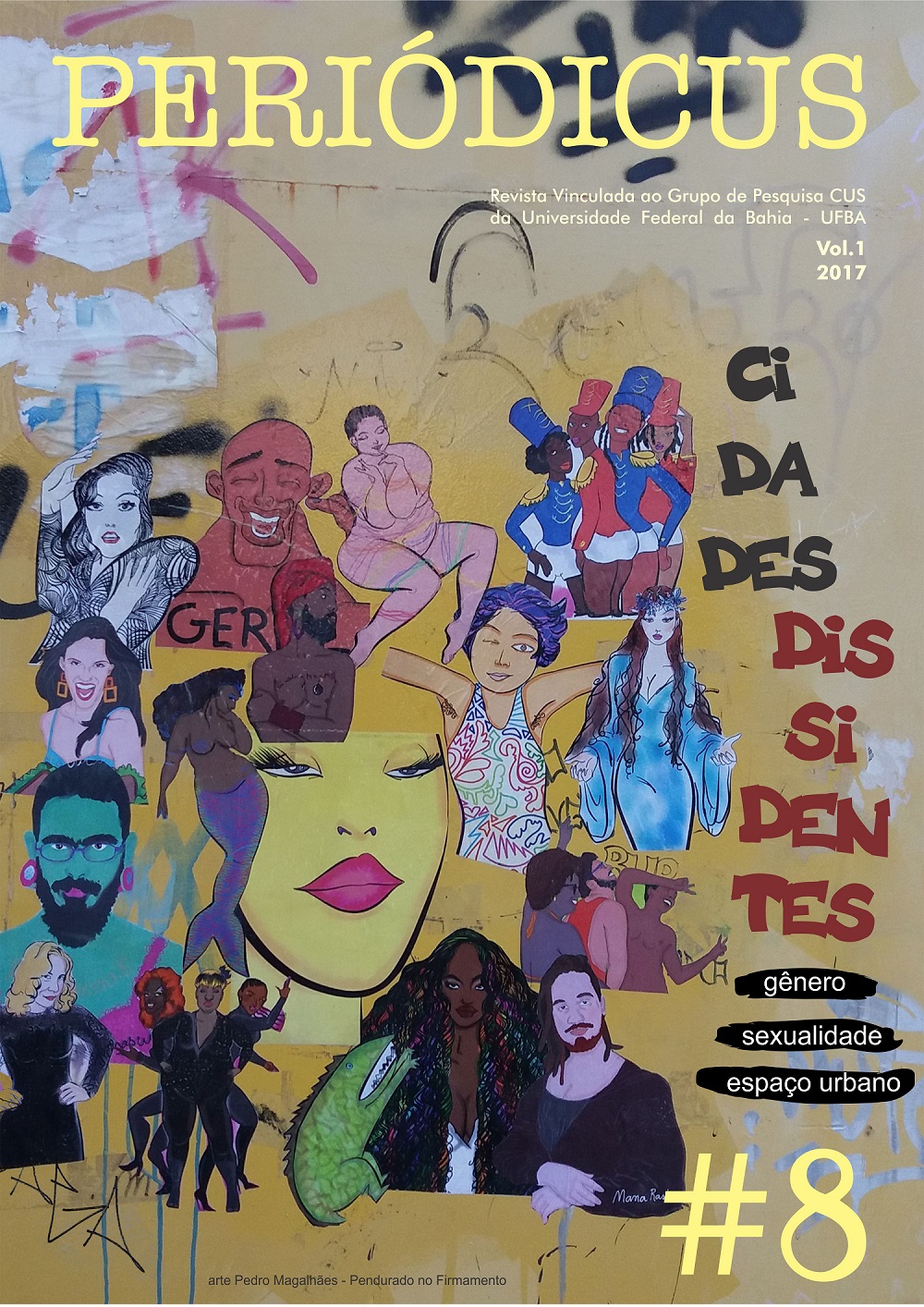A coragem de ser tedioso: aproximações entre dândis e corpos queers
DOI:
https://doi.org/10.9771/peri.v1i8.23244Abstract
O presente artigo almeja discorrer sobre a ligação entre o dandismo e os corpos queers através do conceito do camp e da performatividade. Para tal, traça uma ligação histórica entre o dândi e os corpos aristocráticos e argumenta que os dândis formam uma espécie de proto-subjetividade queer através da discussão sobre os julgamentos de Oscar Wilde, vistos aqui como espetáculos midiáticos públicos que acabaram por incutir em esferas diversas, como a judicial, a médica e a pública, a ideia de traços e poses que poderiam se cristalizar como indicadores da existência da homossexualidade. A hipótese aqui levantada é que o dândi, por sua ambígua relação com a norma, possibilita novas formas de resiliência e contestação através da artificialidade, do tédio e da performance. Como forma de discutir sobre essa possibilidade de subversão e também como tentativa de ampliar o emprego de uma sensibilidade dândi e camp para além da cultura anglo-saxã, o objeto analisado no presente artigo é o filme brasileiro contemporâneo A Seita (André Antônio, 2015).Downloads
Downloads
Published
How to Cite
Issue
Section
License
Copyright (c) 2018 Revista Periódicus

This work is licensed under a Creative Commons Attribution-NonCommercial 4.0 International License.
Authors who publish in this journal agree to the following terms:
Authors retain copyright and grant the journal the right of first publication, with the work simultaneously licensed under a Creative Commons Attribution Noncommercial License that allows the work to be shared with acknowledgment of authorship and initial publication in this journal, but prohibits commercial use.
Authors are authorized to enter into separate additional contracts for non-exclusive distribution of the version of the work published in this journal (e.g., publishing in an institutional repository or as a book chapter), with acknowledgment of authorship and initial publication in this journal.
Authors are permitted and encouraged to publish and distribute their work online (e.g., in institutional repositories or on their personal website) at any point before or during the editorial process, as this can generate productive changes and increase the impact and citation of the published work (see The Effect of Open Access).








